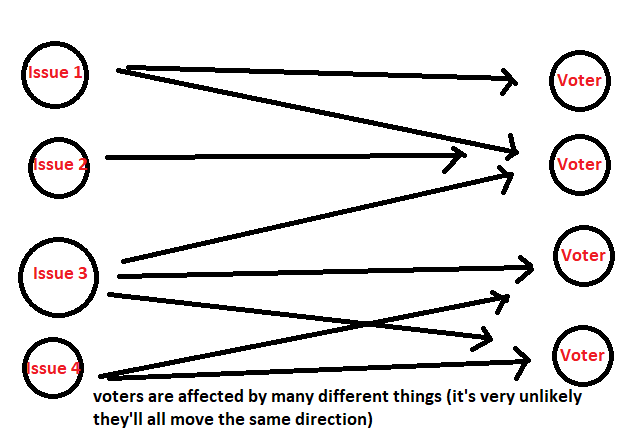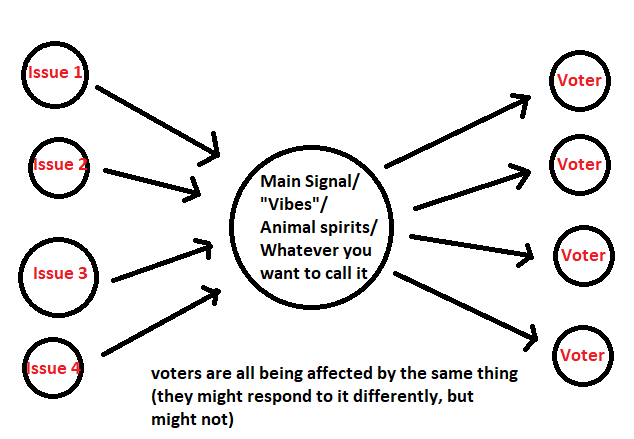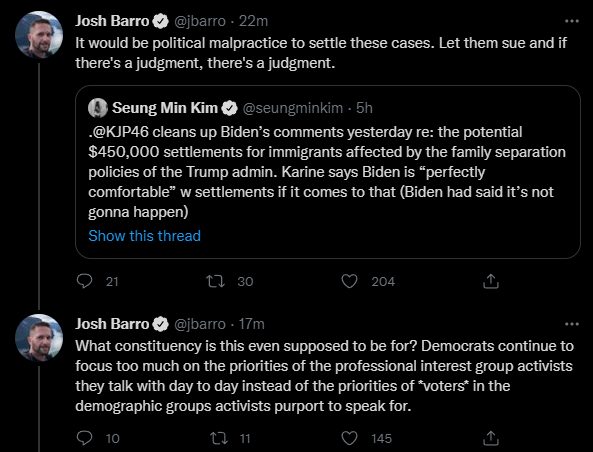
If the exact same infrastructure bill had passed in June with only Dem votes, something that was totally possible, it would have been regarded as a minor win for Biden and quickly forgotten. But nobody in DC seems capable of keeping perspective on anything.
The reasons this infrastructure started to seem like a big deal are that:
1. Biden hasn't been able to pass anything else, and
2. It got bottled up for ages.
1. Biden hasn't been able to pass anything else, and
2. It got bottled up for ages.
But the reason it got bottled up for ages isn't because this bill is particularly significant! It's because this bill was being held back by people who basically supported it, because they were afraid if they DID pass it, Biden wouldn't be able to pass anything else.
But nobody in DC can keep perspective on anything.
• • •
Missing some Tweet in this thread? You can try to
force a refresh






